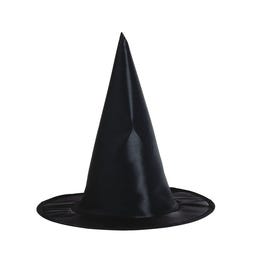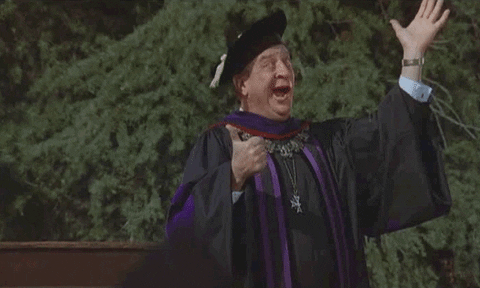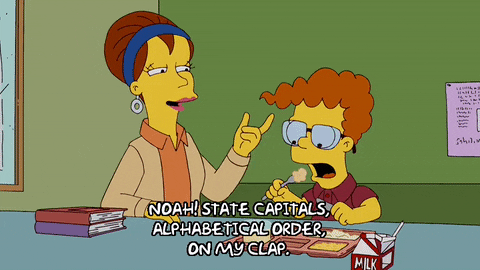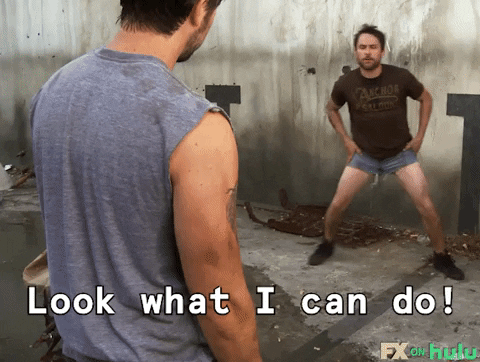Nicole LaPorte is a Los Angeles reporter, mom of a 7 and 9-year-old, and most recently the author of Guilty Admissions: The Bribes, Favors, and Phonies Behind the College Cheating Scandal, which is a juicy read. Nicole and I both happen to be graduates of Georgetown University (she graduated in ‘96; I in ‘01), a school that played a big role in the 2019 Varsity Blues college admissions scandal as their tennis coach accepted bribes to accept fake recruits.
I had questions, after reading her book, about how Nicole’s own college experience differed from those of the kids in her book, about the keeping-up-with-the-Joneses parenting atmosphere in Los Angeles, (where she and many of the Varsity Blues parents live), and what parents of younger kids will, or perhaps have to, learn by the time our kids get to college age. My own parents definitely put a lot of time, energy and money into my college application process and I’ve suspected I won’t try as hard with my kids as my parents did with me. Famous last words though.
I am going to do a follow-up higher ed issue in a week or two interviewing witches who work in academia about how their observations of their students have informed their philosophies about their kids’ own futures and how college has changed since they were students. If you work in the field and have thoughts, let me know! (ETA: this lives here!)
What drew you to Georgetown as a student? Do you think you’d go there now if you did it all again?
I was completely obsessed with Georgetown. My mother went—she was there in the 50’s when the only women were nursing students. She was a Georgetown cheerleader. I was very young when I first set foot on the campus. I thought, “This is what college should look like.” I went to a public high school in Connecticut. I was preppy, did sports, and was a good student. It was the early 90’s, and there wasn’t a lot of enlightened thinking, at least in my world, about colleges. I was very influenced by US News and World Report, stickers and sweatshirts. I was very name brand-oriented. It was a well-rounded school for the smart kid who also did sports but t wasn't a total egghead school. I thought, “I’m going to get amazing academics but also experience life and be with people who aren’t just there to stick their nose in a book.” I’m Catholic, so the Jesuit thing didn’t throw me. Lo and behold I didn't get in. I was crying: my life was over. I was so brazen I had even put a Georgetown sticker on my car. I rationalized it because my mom had gone there. I had to take it off. I was devastated. I ended up going to Boston College. To many people, there’s no real difference between the schools, but to me, there was. I ended up transferring.
With many of these top schools, it’s that much more competitive to get in. As the acceptance rate goes down every year it becomes that much more desirable and a status school. It wasn’t surprising that Georgetown was part of Varsity Blues. One thing that came up in my reporting when I was trying to understand the mindset of the parents is that many are highly educated. These are very smart people. Why would they do this? Parents my age, in their 40s, that went to these good schools, felt that things had changed so much that even they couldn’t get in if they applied now. Their children could not attend the schools they attended because it was just too hard. With acceptance rates plummeting, there was this shift from the well-rounded student, which is what it was all about when I applied. If you're captain of the tennis team and take some AP’s and do well, you’re pretty good to go. That changed into what now they look for—the pointy candidate, which is really masterful at one thing, the oboe, or they started the robotics club that won an award from MIT. Parents look at that landscape and they are very scared.
In the book, you talk about raising your own family in the same area as these rich parents who literally start their kids on the college track from the day they’re born. How hard is it to raise kids near those Los Angeles circles, keep perspective and withstand the temptation to keep up with the Joneses ?
Many people in my generation had kids a little bit later on. I don’t call myself a helicopter parent, but I’m pretty close to it. I use the term ‘artisanal parent.’ A helicopter parent hovers over their kid: they put them in Mandarin and Baby Mozart. Now, artisinal parents —we want our kids to be smart and enlightened but we want them to be interesting. I’m going to sign my kid up for tinkering and woodworking and she’s 7 years old. I’m less interested in Mandarin than art class because I want her to be super creative. It’s a progressive version of helicoptering. It’s social-emotional based. I want the kid who's talking about their feelings. I’m still very involved — I’m not just kicking them out the door to play for 2 hours and climb a tree. I wish I was. I feel like in L.A. you’re surrounded by people who are scheduling their kids and you hear about it so you start scheduling your kid. Mine are in public elementary and I feel the pressure and I second guess myself, “Oh my God, should we be in private school? Is this good enough? There’s only art class once a week and do I need to supplement that?” There’s a feeling of “Don’t miss out” and I’m definitely susceptible to it. On the flip side, I think I’m tuned into understanding who my kids are. Neither of them is really into sports and as soon as I saw that, I said, “We’re not doing that.” I’m more into, “What are they actually interested in?”
Did any of your reporting turn up how the Varsity Blues parents thought their kids would fare once they were in these schools that they cheated their way into? Did they worry they’d struggle once they got in?
I don’t think there was much thought about that at all. I think this was so much about getting the label and getting to say, “My kid is at such-and-such a school” for all the social peer pressure reasons, feeling like if my kid’s at Georgetown or Yale they’re going to be OK. I took care of my kid. Based on all the networking they’ll be exposed to and the relationships they’ll form, whatever level of education they’ll see, they’re going to be OK.” Also, maybe it’s because the kids that come from families with this level of wealth, there’s always a tutor to hire, someone to help them get through. There was one case from Varsity Blues, a kid was at Georgetown and his parents had hired [bribery scheme architect Rick] Singer to use one of his people to take an online class for them.
You raise a good point in the book—that the more experts and outsourcing a privileged parent bring into raising their child, the less capable they are at being an actual parent.
That knee-jerk reaction to reach for the expert, it’s a huge business here in L.A. There’s always someone to hire: the soccer coach for the 4-year-old and the tutor for $350 an hour so the kid passes the kindergarten assessment test. People get into this rhythm and it’s how they deal with parenting. It starts so super young and it’s hard to pull out of it. I feel it myself. I’m a working parent, and we hired a UCLA student to watch our kids for 3 hours a day during COVID. I’m not with my kids for working hours for the day and it does take me awhile to settle into “I can handle a tantrum,” “I can respond to that request.” On the weekend if I'm with them a lot, it’s easier, but when you're not used to it, it throws you and it’s hard and it’s aggravating and I yell. It’s much easier to just say, “Guys, get in the car, I’m bringing you to a class.”
What, generally, do you think would be your attitude towards the college years would be once your kids got to college application age (particularly after your own experiences at Georgetown?)
Spending so much time researching colleges and what the landscape is like is very sobering. I was pretty astonished by how different it is to get in these schools now. With COVID Harvard’s acceptance rate is 3.4%—everyone’s rates are way down. You have to have a pretty unique and outrageously talented kid if you're thinking about these schools. In the book I also mention Colleges That Change Lives. There has been a push to enlighten parents about all these amazing schools that are off the radar. You gotta find the best fit for your kid. At Georgetown, being a writer, we were a small little offshoot of the school. I felt most kids around me were very pre-professional. “We’ll be diplomats,” “We’ll be doctors.” I was off to the side with my English major peers. Looking back, on the one hand, it was a small pond, and I could be a bigger fish. In a way it was empowering. I might not have felt that way if I was around 1000 other people who wanted to work for the literary magazine and go to New York. But my roommates and I were all flipping out when our fellow seniors were buying suits and marching to job interviews. “What are we going to do?” I felt that culture that you need to have this solid job in the fall. I didn’t have any great mentors. I had to figure it out myself.
Where were you in the writing/reporting process when the pandemic hit? How did you write a book with young kids at home during COVID?
This book was a fast turnaround because I signed the book deal right after the scandal happened, which was March of 2019. I researched up until about January. March 2020 I had just started writing. I had to write pretty quickly. My husband and I have an office at WeWork and luckily, it hasn’t shut down, but people stopped coming so I never felt unsafe here. I’m one of three people on the floor. There was one week when L.A. went into total lockdown and I stayed home and tried to work and it was a disaster. Next Monday I was back at WeWork and I never stopped coming. I was lucky I had a place to work and I’m lucky my husband opted to take care of Zoom for us. We split our schedule. He works in the afternoon and evening and I work in the morning and early afternoon and to bridge the gap we found an amazing UCLA student who comes out and hangs out with the kids until 3. I basically still had the same hours and I had the same place to work but there was the added stress of having our kids at home, not having many activities for them and my husband now having to start his day much later and be exhausted. It was a huge added layer of pressure and unhappiness that was not super conducive to writing a book but in a way, it was a good thing I had to move so quickly because I just had to put my head down. When I finished around June, it was like I’d run a marathon.
I know it’s hard to see into the future but between Varsity Blues and the coronavirus pandemic, how do you think parents with kids our age will view the college application process and/or ideas of a child’s “success” by the time our kids are looking at colleges?
I don’t know if I see more enlightenment on the side of parents but I do think things have to shift. Getting rid of the SAT, the result is that people are applying everywhere. There has to be some discussion of making higher ed feel more accessible and not feel like you’re applying to this totally elite private club. Maybe you have to limit the number of applications a kid can send. You can’t send 30 and just throw spaghetti at the wall. What are the six or schools you think would be a good fit? That alone would get rid of three single-digit acceptance rates. Scott Galloway at NYU talks about how schools need to make their class size bigger. Why is Harvard's class size the same size it was 40 years ago? They have these $40 billion endowments: use that let to let more kids in. If you want a more equitable student population you can’t make it only 3% get in. I think a lot of systemic change has to happen and the chaos that ensued with the test-optional, they’ll have to deal with that. The harder is it to get in the school the more parents want it and the more desperate they feel.
End credits
I hope you enjoyed this issue of Evil Witches, a newsletter for people who happen to be mothers who try to be chill but of course are always worrying about the next thing. Some other future topics include asking for money at work and stories of car crashes that immediately followed receiving one’s driver’s license (hit me up!)
If you like this newsletter and haven’t yet, please consider supporting this independent, nonsponsored work and joining the subscription level, which gives you extra context and access to fun honest witchy discussion threads.
If you have already subscribed, thank you. I know there are a lot of newsletters out there and you can only subscribe to so many so I appreciate your support. If you have any questions, feedback, or suggestions for the newsletter you can reply right to this email. You can follow us on Instagram here and talk to other witches on Twitter, too. If you’re not up for that, please consider giving it a shout on social media or on your own newsletter or podcast or what have you!
Here are a few nice Tweets about the newsletter:















You just nailed exactly how I feel about yoga class, thank you
Well, I don't see the colleges who get the most media attention increasing their admission rates any time soon. But what virtually all of the articles and books ignore/don't focus on is that the vast majority of colleges and universities (4-year, 2-year, private, public, large, small) admit the majority of their applicants, and also offer at least some financial aid. The schools in the referenced Colleges That Change Lives book are a great place to start, but it also holds true for the majority of large and medium sized schools as well. Really, I think we need to shift the conversation to be more inclusive of the higher education landscape as a whole, rather than the handful of schools. As for worrying about my kids getting into college, yes, of course I worry, but I also know that there will be a wide range of options, especially if I can set my own ego aside (WAY easier said than done). I also take heart in the fact that lower national birth rates mean that there will be fewer high school graduates in the years my children are going to be applying to college (https://knocking.wiche.edu/wp-content/uploads/sites/10/2020/12/Knocking-pdf-for-website.pdf) so less competition, lol. These projections are the cause of stress for enrollment management and higher ed administrators across the country, and will cause other issues, but will open up the admission potential for a lot of students at the majority of colleges and universities. 20+ years into a career in higher education administration, including a long stint in admissions means that I have lots of opinions! haha